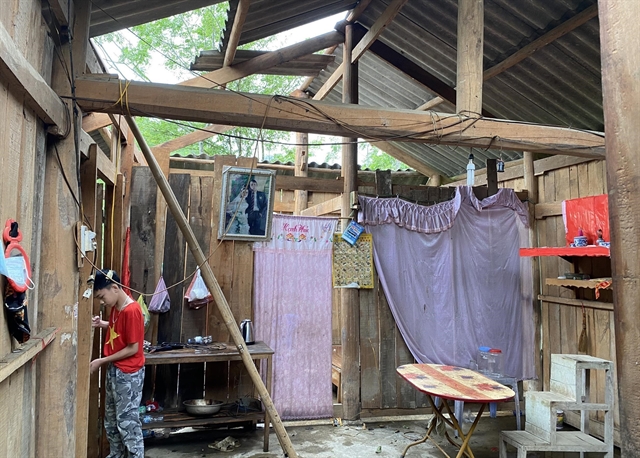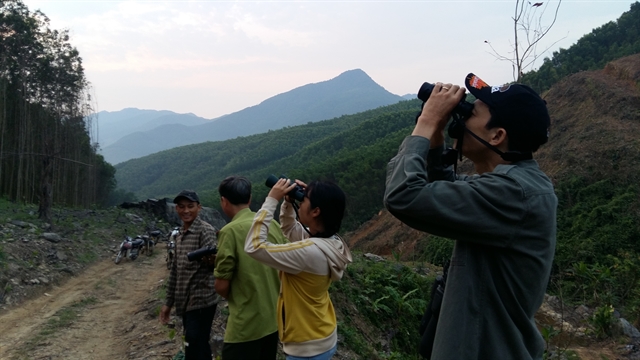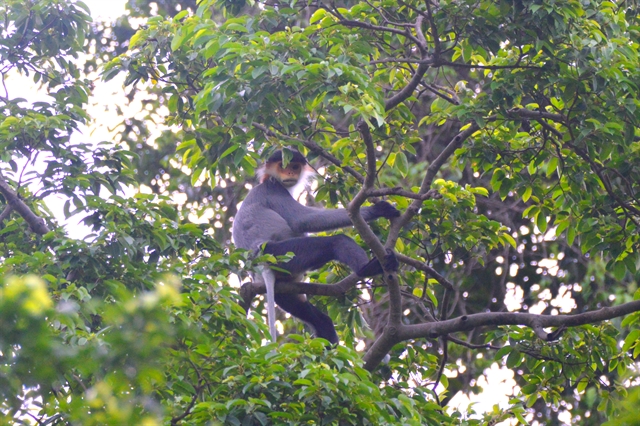 Society
Society


|
| Local residents and rangers patrol to protect of herd of gray-shanked douc langurs in Núi Thành district of Quảng Nam Province. Human activities near the primates were banned. VNS Photo Công Thành |
QUẢNG NAM — Strict protection and limited human contact, as well as constant patrols, have remained in place for the protection of a herd of gray-shanked douc langurs (pygathrix cinerea) – a critically endangered species – living in Đồng Cổ Village of Tam Mỹ Tây Commune.
A source from the local rangers told Việt Nam News on Wednesday that check-points were set up to control travel among residents and people from neighbouring areas during the 14-day social distancing order issued to prevent the spread of the COVID-19 pandemic.
Nguyễn Danh, a volunteer, said each team member was assigned to patrol the 30ha primary forest – a safe shelter of the endangered primates – with local rangers 14 days each month.
“All journeys and health declarations among local residents and visitors from other provinces passing the area must be carefully checked. Local farmers were warned not to approach log farms, and stay away from langurs,” he said.
“Although living a safe distance from humans, we have still set up strict control on human activities that would come close to the species.”
Dr. Hà Thăng Long, head of the Frankfurt Zoological Society, a langur researcher in Việt Nam, said wildlife and primate species have their own basic protection mechanisms from being infected by the virus.
He said wildlife and primates are usually far from human activities, and their resistance could spark immediately when a strange virus infects their bodies.

|
| A gray-shanked douc langur lives in a primary forest in Quảng Nam Province. VNS Photo Công Thành |
Long said a tiger in a zoo in New York, the US, was found to be infected with SARS-CoV-2, but coronavirus infection possibilities among other species could be tested or checked by specific scientific research.
Recently, the WorldWide Fund for Nature (WWF)-Việt Nam and the Đà Nẵng-based Centre of Biodiversity Conservation, GreenViet, have been working together on a project to protect the gray-shanked douc langurs in Quảng Nam Province’s Núi Thành district in 2020.
A herd of 50 gray-shanked douc langurs were found living in the area from 1997, and it was protected by the local community.
Some 1,000 gray-shanked doucs have been found in forests of five provinces, including Quảng Nam, Quảng Ngãi, Bình Định, Kon Tum and Gia Lai.
The gray-shanked douc langur is listed on the International Union for Conservation of Nature red list as one of the world’s 25 critically endangered primates. — VNS









